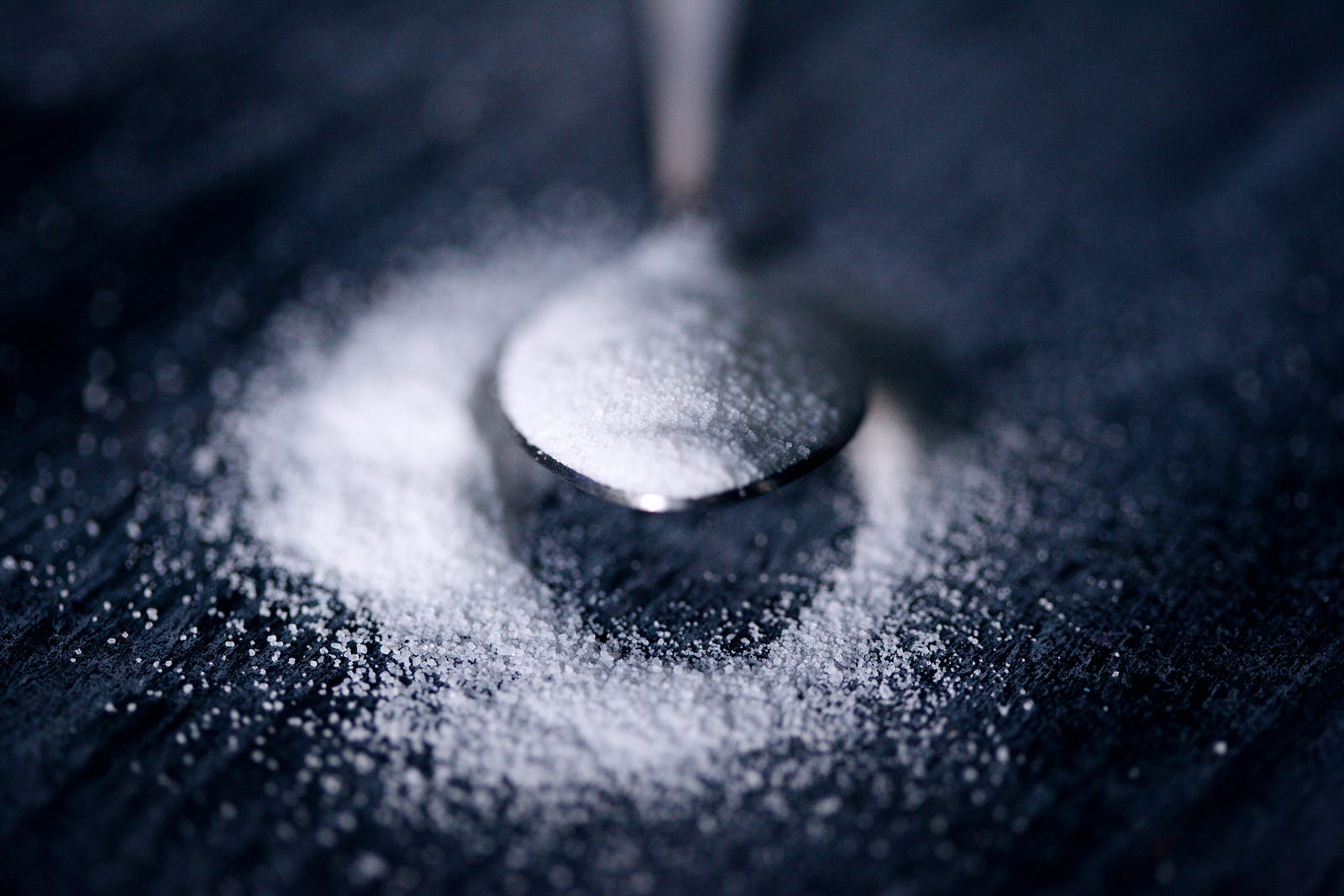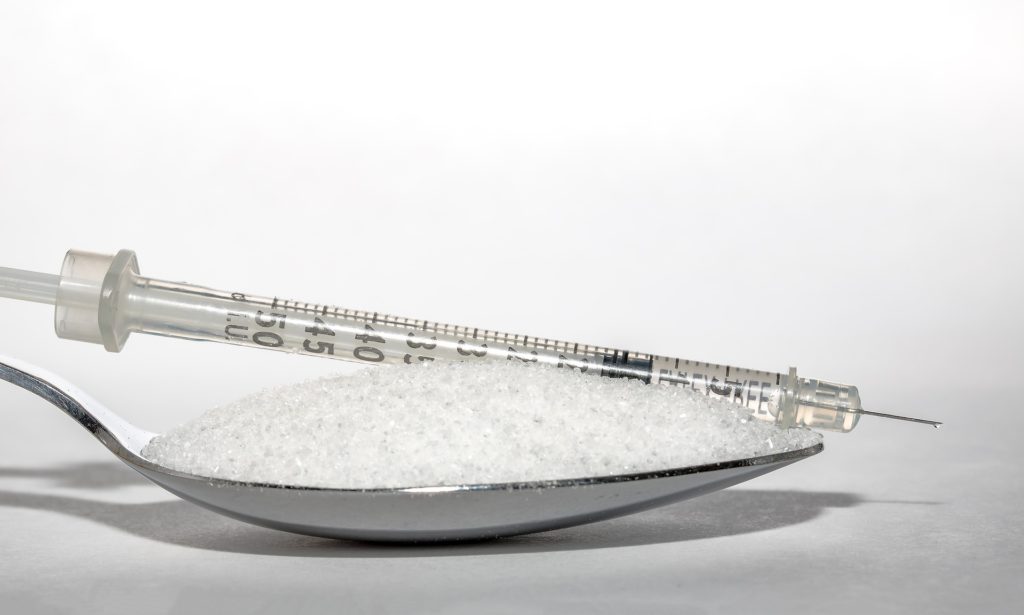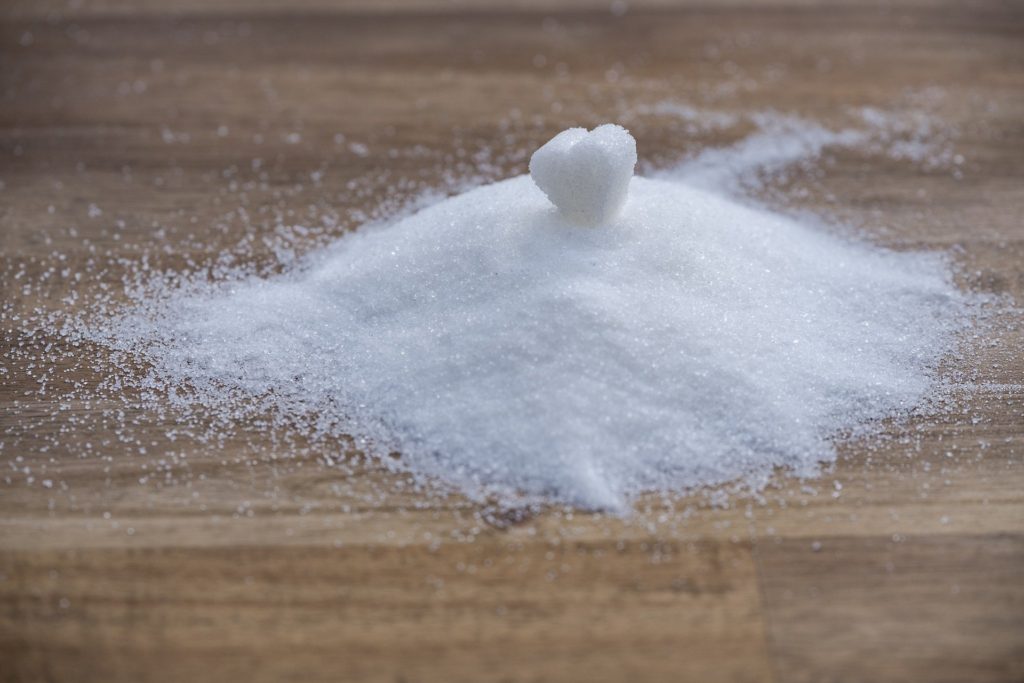Most artificial sweeteners aren’t inflammatory, but they can cause other bad effects.
Artificial sweeteners, like sucralose and saccharin, have been getting a bad rap recently.
Many people think that they are inflammatory, break down the body’s ability to respond appropriately to sugar, or are just a bad choice in general.
Is their reputation completely justifiable or blown out of proportion?
To answer that question, let’s take a look at how artificial sweeteners are made, their potential benefits and downsides, and whether or not they’re inflammatory.
What Are Artificial Sweeteners?
Artificial sweeteners are zero-calorie sweeteners that are made from chemicals. They’re commonly used in diet foods like diet soda and sugar-free candies.

How Are Artificial Sweeteners Made?
Artificial sweeteners like aspartame and saccharin are made from chemicals similar to pesticides.
They’re made by combining two or more different chemicals to produce something pretty close to sugar, but without any of the nutrition.
But, since they’re so artificial and similar to pesticides, they can cause many harmful effects on your body.
Potential Benefits of Artificial Sweeteners
Sweeteners like aspartame, saccharin, and sucralose are calorie-free, which is great for people trying to control their weight.
They can also provide a lower glycemic response than other sweeteners.
This means that your blood sugar will respond less to a sweetened drink or food.
You’ll feel less hungry throughout the day and your blood sugar won’t spike as much.
While these benefits sound great, there have been concerns about the possible side effects of artificial sweeteners for years.
And there’s been a recent push for better regulating the use of these sweeteners.
So, do they have real downsides? Are they inflammatory? Let’s explore further.

Are Artificial Sweeteners Inflammatory?
Artificial sweeteners are inflammatory since they’re neurotoxic, meaning they cause oxidative stress to the brain.
In a study with around 3,000 people, they found that those who regularly consumed artificial sweeteners increased their risk for stroke and dementia by 3x!
In another study, artificial sweeteners were linked to inflammation in the gut.
However, compared to sugar, artificial sweeteners are less inflammatory.
Are Artificial Sweeteners Bad for You?
Most artificial sweeteners are bad for you since they’re neurotoxic, meaning they cause damage to the brain. This is because artificial sweeteners are chemicals, so they’re foreign to the brain and body and cause oxidative stress.
That’s why the study I mentioned above found that those who consumed artificial sweeteners had a higher chance of developing stroke and dementia.
And for that reason, I recommend to avoid artificial sweeteners.
But, if you had to choose between sugar or an artificial sweetener, you should probably go for the artificial sweetener since sugar is worse for you.
However, when possible, you should try to avoid artificial sweeteners altogether.
But, all zero-calorie sweeteners aren’t bad for you.
There are some natural zero-calorie sweeteners that don’t cause these toxic effects.
*Note: Some of these links are Amazon affiliate links, which I earn a small commission from if you decide to buy from.*

What’s the Difference Between Natural and Artificial Sweeteners?
Natural and artificial sweeteners both have zero-calories, so they’re often lumped together as one group. But, artificial sweeteners are made from chemicals, whilst natural sweeteners are made from plants.
Artificial sweeteners, like Splenda and saccharin are made in a lab, while natural sweeteners like stevia and monk fruit are extracted from plants.
There are two types of artificial sweeteners:
- Common artificial sweeteners
- Sugar alcohols
Common artificial sweeteners are, as the name implies, the most common artificial sweeteners.
The most common artificial sweeteners are sucralose (Splenda,) saccharin (Sweet ‘N Low,) aspartame (diet soda,) and acesulfame k (Equal.)
The second group of artificial sweeteners are sugar alcohols, which are sugar molecules that are slightly modified to lower their calorie content.
But, the problem with both of these artificial sweeteners is that they’re artificial and cause problems within the body.
Artificial sweeteners may seem helpful for diabetics or people trying to lose weight, but they can cause numerous negative side effects like diarrhea, pathogenic gut bacteria growth, stroke, and even dementia.
For that reason, I recommend avoiding artificial sweeteners and instead recommend using natural zero-calorie sweeteners, like stevia, erythritol, or monk fruit.
The good thing with natural sweeteners is that they have zero calories, but since they’re natural, they don’t cause any of the negative health effects that artificial sweeteners cause.
Conclusion
In conclusion, most artificial sweeteners are inflammatory since they’re toxic to your body.
Since artificial sweeteners have been shown to increase your risk for many diseases, like dementia, it’s best to avoid them at all costs.
Instead, use natural zero-calorie sweeteners, like stevia or monk fruit, so you can have sugar-free food without causing harm to your body.
If you want to find out why artificial sweeteners cause stroke and dementia, you can read my article here where I go more in-depth.
Hoped this helped!
- Can You Still Lose Weight If You Aren’t in Ketosis? - February 8, 2023
- Can the Keto Diet Help With Depression? - February 8, 2023
- Why Does Processed Food Make You Fat? - January 2, 2023




